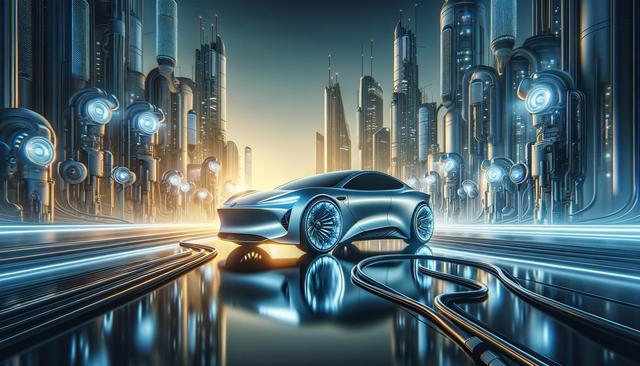
Understanding Hybrid Cars: Efficiency Meets Innovation
What Are Hybrid Cars?
Hybrid cars are vehicles that use a combination of an internal combustion engine and an electric motor to power the vehicle. This dual system allows the car to switch between or simultaneously use both power sources to maximize fuel efficiency and reduce emissions. There are several types of hybrid systems, including full hybrids, mild hybrids, and plug-in hybrids, each offering varying degrees of electric assistance and battery charging capabilities.
The primary goal of hybrid technology is to optimize fuel consumption without compromising performance. In most cases, the electric motor provides power during low-speed driving or idling, while the gasoline engine kicks in during higher speeds or when extra power is needed. This synergy not only conserves fuel but also contributes to a quieter, smoother driving experience. For more information on how to explore hybrid options, visit https://go.jexli.com/postback?clickId={click_id}&payout={epayout}&p2={campaign}.
Benefits of Driving a Hybrid Car
Hybrid cars offer a wide range of advantages, making them a practical choice for a variety of drivers. One of the most prominent benefits is improved fuel economy, which leads to cost savings over time. Many hybrid models achieve significantly higher miles per gallon than their conventional counterparts.
Here are some key benefits hybrid car owners enjoy:
- Reduced greenhouse gas emissions
- Lower fuel costs due to better mileage
- Tax incentives and rebates in some regions
- Quieter operation, especially in electric mode
- Regenerative braking systems that help recharge the battery
Another advantage is the reduced environmental impact. By relying more on electricity, hybrid cars emit fewer pollutants, making them a cleaner alternative to traditional gasoline vehicles. To see how hybrids can fit into your lifestyle, check out https://go.jexli.com/postback?clickId={click_id}&payout={epayout}&p2={campaign}.
How Hybrid Technology Works
Hybrid vehicles use a complex but efficient system to combine the power of gasoline and electricity. The battery-powered electric motor is often responsible for initiating movement, especially at lower speeds. As acceleration demands increase, the gasoline engine steps in to provide additional power. Some hybrids can even operate using only electric power for short distances, which is particularly useful in city driving.
Key components of a hybrid system include:
- Gasoline engine
- Electric motor(s)
- Battery pack
- Power control unit
- Regenerative braking system
These components work in harmony to deliver a seamless driving experience. Energy lost during braking is captured and stored in the battery for later use, reducing waste and extending efficiency. For a deeper dive into the mechanics of hybrid systems, explore https://go.jexli.com/postback?clickId={click_id}&payout={epayout}&p2={campaign}.
Common Misconceptions About Hybrid Cars
Despite their growing popularity, hybrid vehicles are still subject to several misconceptions. One common myth is that they are underpowered compared to traditional cars. In reality, many hybrids offer comparable, if not superior, performance, particularly in urban settings where electric motors are most effective.
Another misconception is that hybrid batteries need frequent replacement. However, most hybrid batteries are designed to last for many years and tens of thousands of miles. Additionally, technological advancements have made battery costs more manageable and replacement less frequent than many assume.
It’s also mistakenly believed that hybrids are only suitable for city driving. While they do excel in stop-and-go traffic, many models are equally competent for highway travel and long-distance commuting. For more clarity on hybrid ownership, visit https://go.jexli.com/postback?clickId={click_id}&payout={epayout}&p2={campaign}.
Choosing the Right Hybrid for You
Selecting the right hybrid vehicle depends on your specific needs, driving habits, and budget. With numerous models available—from compact cars to SUVs—there is likely a hybrid that suits your lifestyle.
Consider these factors when choosing a hybrid:
- Driving distance and environment (city vs. highway)
- Desired fuel efficiency
- Initial budget and long-term savings
- Charging accessibility for plug-in hybrids
- Available features and technology
Plug-in hybrids may be ideal for those with access to charging stations and shorter commutes, while full hybrids are often better for longer drives and minimal charging needs. To compare options and get personalized suggestions, take a look at https://go.jexli.com/postback?clickId={click_id}&payout={epayout}&p2={campaign}.


